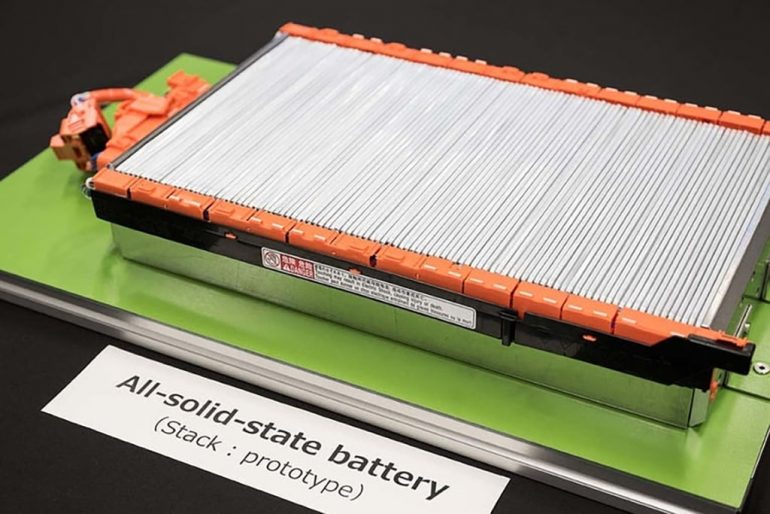
Toyota’s foray into solid-state battery technology, a promising frontier for electric vehicles, has garnered unwanted attention with recent announcements suggesting a tempered initial rollout. While Toyota, at the forefront of solid-state battery development, has confirmed the commencement of production by 2027, the scale of this endeavor may not meet the high expectations of the market.
In a report from the Toyota Times, the automaker revealed that the initial annual production of solid-state batteries would be relatively modest, totaling only several hundred tons. This cautious approach indicates that mass production on a significant scale is not expected until 2030. Consequently, the projected output, amounting to several thousand tons, will power “several tens of thousands of vehicles,” aligning with Toyota’s specific product plans.
However, the nuance lies in the fact that this quantity is a mere fraction of Toyota’s annual vehicle production, which extends into the millions. Thus, the deployment of solid-state batteries will be limited to a small percentage of the vehicles manufactured by Toyota. This revelation tempers expectations, particularly for those anticipating a widespread integration of the cutting-edge technology across the entire vehicle lineup.
Despite Toyota’s reputation as one of the automotive industry’s most innovative players, the deliberate pace at which it plans to scale up solid-state battery production suggests a protracted timeline before this technology becomes mainstream. The company’s decision to focus on this advanced battery technology indicates a long-term investment in transforming the landscape of electric vehicles.
Toyota’s commitment to solid-state batteries is underscored by the ambitious performance targets it has set. The automaker has pledged to power electric vehicles with a remarkable 600 miles of range by 2027, with a rapid 10-minute recharge capability. This surpasses its earlier commitment to achieving 500-mile electric vehicles by 2026, with future aspirations for an astonishing 745 miles on a single charge.
Historically, cutting-edge technologies often debut in high-end vehicles before trickling down to mass-market cars over time. Considering the limited production of solid-state batteries, there is speculation that they might initially find a place in exclusive sports or supercars, such as a potential successor to the electric Lexus LFA. However, this transition to broader accessibility seems distant, prompting expectations that forthcoming Toyota EVs, like the bZ4X crossover, will likely continue utilizing lithium-ion batteries for the foreseeable future.
Toyota’s collaboration with Idemitsu Kosan, a Japanese petrochemical firm specializing in solid-state batteries, underscores the sophistication of their design. Featuring a flexible and crack-resistant solid electrolyte material, these batteries offer advantages over the prevalent lithium-ion batteries, including superior energy density, improved performance, and reduced weight.
In essence, while the advent of solid-state batteries heralds a transformative era for electric vehicles, the limited initial production suggests a more gradual integration into the broader market. The shift from traditional lithium-ion batteries to solid-state technology is poised to redefine electric vehicles, but the timeline for this paradigm shift may not align with immediate consumer expectations. Despite the measured approach, Toyota’s commitment to selling over three million electric vehicles by 2030 underscores its dedication to pushing the boundaries of electric mobility.

Lloyd Tobias is a seasoned automotive journalist and passionate enthusiast with over 15 years of experience immersed in the world of cars. Whether it’s exploring the latest advancements in automotive technology or keeping a close pulse on breaking industry news, Lloyd brings a sharp perspective and a deep appreciation for all things automotive. His writing blends technical insight with real-world enthusiasm, making his contributions both informative and engaging for readers who share his love for the drive. When he’s not behind the keyboard or under the hood, Lloyd enjoys test driving the newest models and staying ahead of the curve in an ever-evolving automotive landscape.